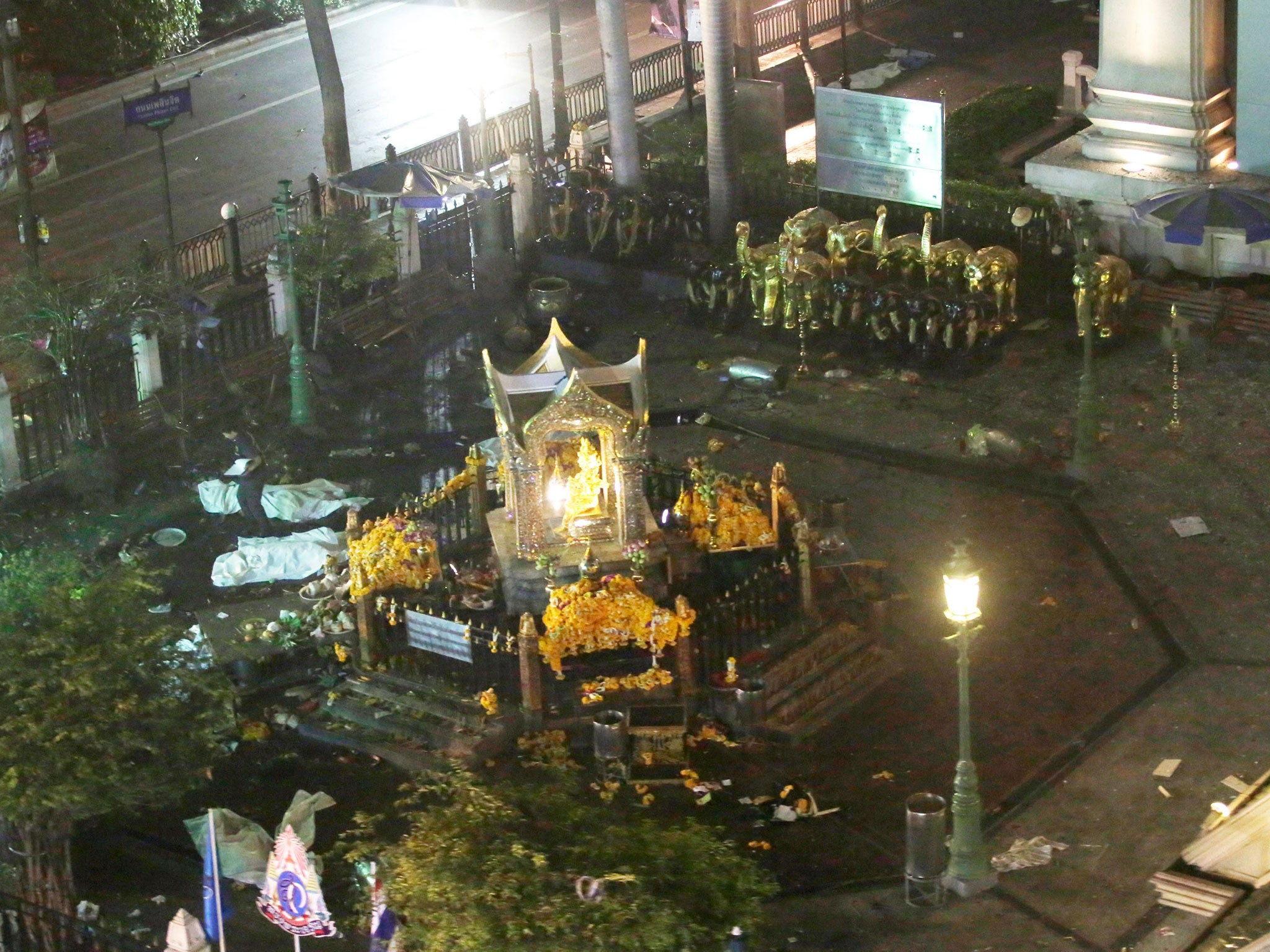Thailand's currency sinks to six-year low after bombing
The Thai baht fell to its weakest level in more than six years after more than 20 people were killed and 120 wounded in the worst ever terrorist attack on the country yesterday.

The Thai baht fell by as much as 0.8% to 35.648 against the dollar, the lowest level since April 2009 and worse than during last year’s military coup.
Bangkok shares slumped by almost 3%, with tourism-linked companies such as Airports of Thailand and Central Plaza Hotel particularly hurt.
Analysts warned that there could be more share sell-offs, which would again damage the currency, because the attack will ruffle the country’s tourism sector.
Tourism accounts for about one-tenth of Thailand’s economy and is reaching its high season.
The attack was carried out at the Erawan Shrine, which is a major tourist attraction, and resulted in the deaths of foreigners, including Chinese.
The shrine is home to a gilded statue to honour the Brahma God, whose four faces represent kindness, mercy, sympathy, and impartiality.
Chinese shares also slipped in its late trading, down 6%, which rippled into depressed trading in neighbouring Asian stock markets.
Join our commenting forum
Join thought-provoking conversations, follow other Independent readers and see their replies
Comments